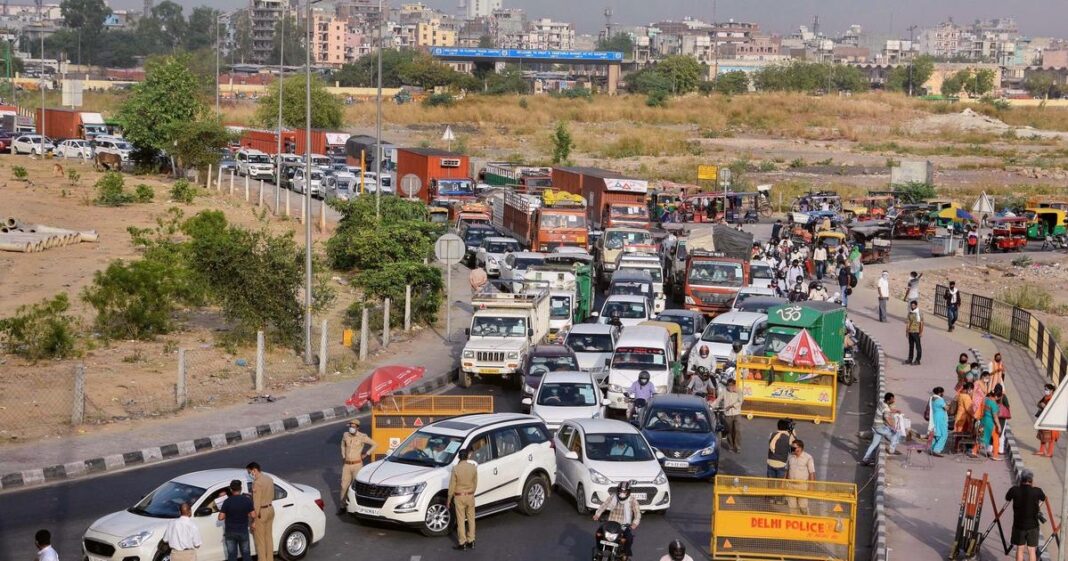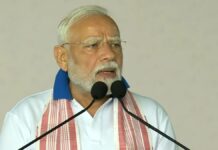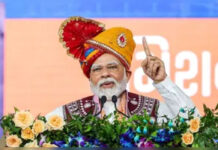In a bid to tackle the escalating traffic congestion in the capital, the Delhi government is moving forward with plans to introduce a congestion tax aimed at reducing vehicular movement during peak hours. According to Shahzad Alam, the special commissioner of transport, the government is developing a “congestion pricing” strategy, which will charge drivers for using designated roads when traffic is at its heaviest.
“New fund allocation is happening for managing the transport… What we are working on is called congestion pricing,” Alam stated in an interview with ETAuto. The initial phase of this initiative will target 13 key locations along Delhi’s borders, identified as critical points for congestion.
The idea of a congestion tax in Delhi is not entirely new; it echoes a proposal made in 2018 by then-Lt. Governor Anil Baijal. He suggested implementing charges for vehicles entering congested areas during peak hours, with the objective of alleviating traffic woes and reducing pollution levels. At that time, Baijal emphasized the need for expert consultations and public feedback before any policy rollout. Notably, 21 high-traffic zones were earmarked, including the ITO intersection and the Mehrauli-Gurgaon Road, as potential areas for the tax. Additionally, a parliamentary committee had recommended similar measures in 2017, highlighting the urgent need for action to manage congestion in the city.
The push for a congestion tax comes amid growing discussions in other Indian cities as well. Recently, Bengaluru authorities considered a congestion tax to alleviate traffic during rush hours on high-density roads. A report from Karnataka’s planning department, titled Karnataka’s Decade – Roadmap to $1 Trillion Economy, proposed using the existing FASTag system to levy charges on non-exempt vehicles entering the city during peak times. The generated revenue could then be allocated towards enhancing public transport, reducing pollution, and improving overall quality of life for residents.
Cities around the world, such as Singapore, London, and Stockholm, have successfully implemented similar congestion pricing models, demonstrating their effectiveness in managing traffic flow and reducing congestion. As Delhi grapples with its own traffic challenges, the proposed congestion tax may offer a viable solution to create a smoother, more efficient transportation network in the capital.








can you get generic clomiphene online where to buy clomiphene price how can i get generic clomid how to get generic clomid without prescription where can i get clomiphene price generic clomid without prescription order clomid for sale
More articles like this would make the blogosphere richer.
I couldn’t turn down commenting. Adequately written!
azithromycin 250mg cost – cost flagyl 400mg metronidazole 200mg pill
buy rybelsus 14mg generic – cyproheptadine cheap buy cyproheptadine no prescription
order generic domperidone – buy cheap domperidone order flexeril 15mg
inderal 10mg sale – purchase inderal sale purchase methotrexate for sale
buy augmentin online cheap – atbioinfo.com buy generic ampicillin online
where to buy nexium without a prescription – https://anexamate.com/ purchase nexium without prescription
cost mobic 15mg – tenderness meloxicam us
buy deltasone 40mg without prescription – https://apreplson.com/ buy prednisone 10mg generic
buy generic amoxil for sale – order amoxil pills amoxil buy online
cenforce 50mg oral – https://cenforcers.com/# cenforce for sale
buy a kilo of tadalafil powder – ciltad generic what does a cialis pill look like
zantac for sale online – on this site ranitidine us
overnight cialis delivery – https://strongtadafl.com/ vardenafil and tadalafil
The thoroughness in this section is noteworthy. online
viagra online generic cheap – https://strongvpls.com/# viagra 50 off coupon
More content pieces like this would urge the web better. neurontin 800mg sale
The reconditeness in this piece is exceptional. https://aranitidine.com/fr/ciagra-professional-20-mg/
This is a keynote which is forthcoming to my fundamentals… Numberless thanks! Quite where can I lay one’s hands on the contact details due to the fact that questions? https://ondactone.com/product/domperidone/
More articles like this would make the blogosphere richer.
https://doxycyclinege.com/pro/tamsulosin/
I am in point of fact enchant‚e ‘ to glitter at this blog posts which consists of tons of profitable facts, thanks representing providing such data. http://www.gtcm.info/home.php?mod=space&uid=1157017
purchase dapagliflozin online cheap – https://janozin.com/ buy forxiga 10mg for sale
buy orlistat for sale – this order xenical 60mg online cheap
Thanks on sharing. It’s top quality. https://sportavesti.ru/forums/users/ggnwq-2/
You can shelter yourself and your dearest by being cautious when buying panacea online. Some druggist’s websites manipulate legally and offer convenience, privacy, bring in savings and safeguards to purchasing medicines. buy in TerbinaPharmacy https://terbinafines.com/product/lopressor.html lopressor
I’ll certainly return to be familiar with more. viagra generique 50 mg sans ordonnance
This is the kind of literature I positively appreciate.
Đến với J88, bạn sẽ được trải nghiệm dịch vụ cá cược chuyên nghiệp cùng hàng ngàn sự kiện khuyến mãi độc quyền.
搭载智能站群程序,自动化搭建与管理,为SEO项目提供核心驱动力。站群程序
Tham gia cộng đồng game thủ tại Go88 để trải nghiệm các trò chơi bài, poker phổ biến nhất hiện nay.
mgm bet app betmgm-play betmgm bet 10 get 200
Immerse in the symphony of spinning reels and cheering wins. In crown coins casino, cashback offers soften any losses. Spin with confidence today!
Chumba Casino: the social casino that actually pays out real cash prizes. Claim chumba casino free play right now and start your winning streak. Join the fun!